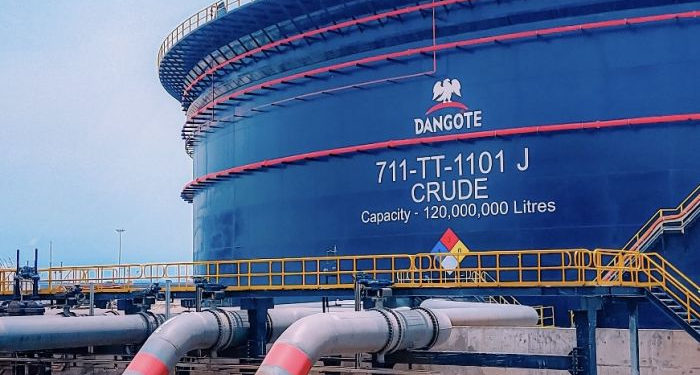The Dangote Petroleum Refinery has thrown its weight behind the federal government’s decision to impose a 15% ad-valorem import duty on petrol and diesel, describing it as a necessary measure to protect local refiners and curb the dumping of imported products.
In a statement seen by Nairametrics, the company’s Group Chief Branding and Communications Officer, Anthony Chiejina, said the policy “marks a good start” in discouraging importers from flooding the Nigerian market with cheaper, substandard petroleum products at the expense of local production.
Chiejina argued that fuel dumping has historically undermined domestic industries citing the collapse of Nigeria’s textile sector as an example and urged regulators to enforce strict monitoring to prevent the importation of adulterated or underpriced products.
“Dumping discourages industrialisation, creates unemployment and leads to revenue loss for the government,” he said, adding that nations across the world protect local industries from such practices.
He also claimed the refinery currently has sufficient capacity to meet national demand, stating that it is loading about 45 million litres of petrol and 25 million litres of diesel daily, while working with regulatory agencies to ensure nationwide distribution.
Context: the 15% import duty
On October 30, Nairametrics reported that President Bola Tinubu approved a 15% ad-valorem duty on imports of premium motor spirit (PMS) and automotive gas oil (diesel).
The directive, contained in a letter from the Presidency to the Federal Inland Revenue Service (FIRS) and the Nigerian Midstream and Downstream Petroleum Regulatory Authority (NMDPRA), aims to encourage local refining and reduce over-reliance on imported petroleum products.
The government said the tariff is not primarily revenue-driven but designed to create a level playing field for domestic producers like the Dangote refinery and modular refiners.
However, not everyone agrees with the policy or Dangote’s position. Several marketers and analysts have warned that the new duty could push fuel prices higher and limit competition in the downstream market.
According to reports from industry sources, importers currently cover nearly 60% of Nigeria’s PMS supply, and a 15% duty could raise landing costs by as much as N90 to N100 per litre a cost that will likely be passed on to consumers.
The Petroleum Products Retail Outlets Owners Association of Nigeria (PETROAN), while supporting efforts to protect local refiners, has cautioned against potential monopolies, urging the government to ensure equitable access to crude oil for all refiners and fair market practices.
The African Democratic Congress (ADC) also criticised the decision, describing it as “ill-timed” given rising inflation and worsening living costs.
The party warned that the policy could further raise pump prices beyond N1,000 per litre if local supply fails to fully replace imports.
What this means
The policy comes at a time when Dangote Refinery, touted as Africa’s largest, is ramping up operations and seeking to dominate Nigeria’s fuel supply.
While the tariff may strengthen domestic refining and save foreign exchange in the long term, its short-term impact could include higher fuel prices, reduced competition, and greater reliance on a single supplier.
Industry stakeholders say the government’s next challenge will be to balance protection for local refineries with consumer welfare and market competitiveness as the downstream market transitions from import dependence to self-sufficiency.














